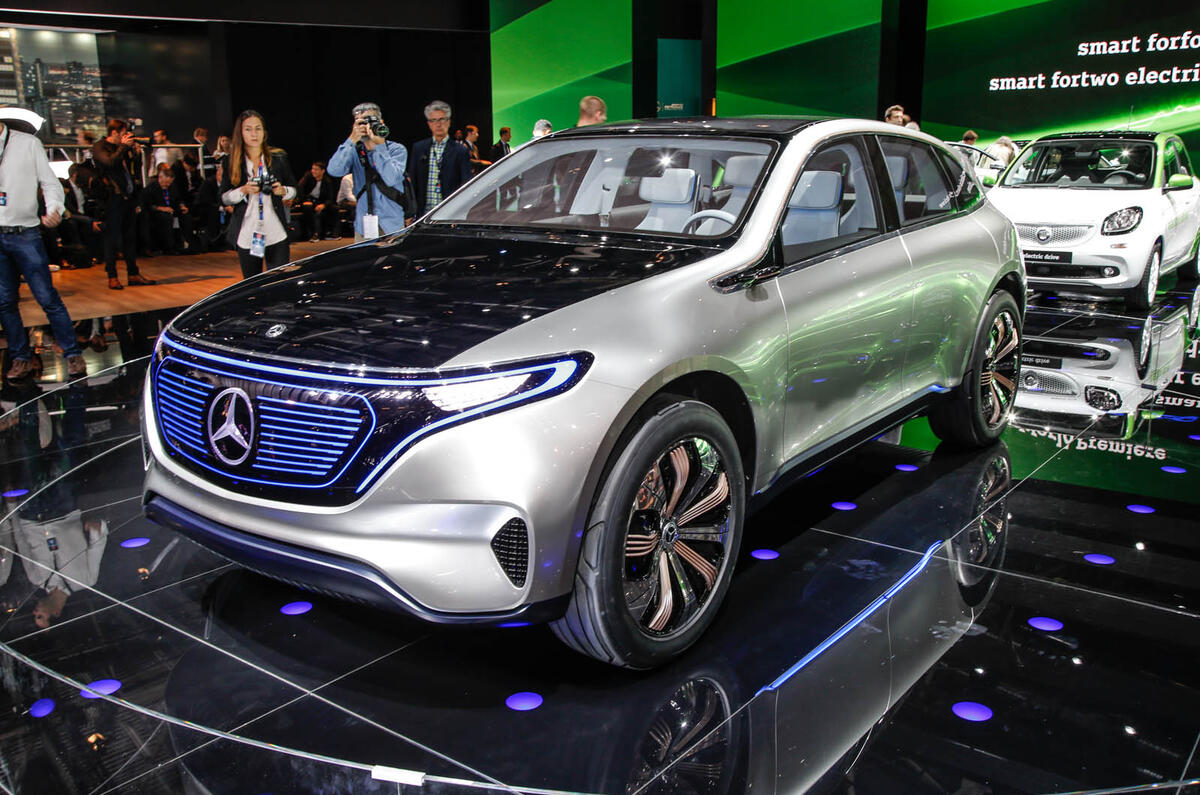According to Jürgen Schenk, Mercedes-Benz’s electric car boss, the ‘tipping point’ when electric cars become fully established as a new technology is expected to be reached in February next year.
Quoting the mathematical theory of technology adoption, electric cars are expected to break through the 1% share of the global car market early next year. Currently they make up 0.6% of the market.
Mercedes-Benz unveils electric EQA hatchback concept
“One per cent is the point at which the technology can’t be stopped and it is here to stay,” said Schenk. “And the tipping point in Europe is not far away either.”
Electric cars currently have a 0.4% market share in Europe, with the 1% threshold forecast to arrive in early 2018.
Once 50% market share is reached, the technology will start to take over from the internal combustion engine, signalling the decline of the powerplant that powered the car for its first century of production.
Schenk said Mercedes’ announcement of its new EQ electric car brand and the unveiling of the EQ concept at Paris are closely linked to this nearing tipping point.
“There are many reasons but one of them is that we recognise that technology is changing and this tipping point is approaching,” he added. “We are eager to go for this plan.”
Mercedes announced a new 10-model line-up of battery-electric cars to be launched by 2025, when they will contribute 15 to 25% of Mercedes’ total passenger car sales.
Depending on how Mercedes’ car sales grow over the next decade from last year’s two million units, conservative estimates suggest that could be equivalent to 1m-plus EVs.
Volkswagen is planning on selling 1m electric cars per year on a similar timescale, with a further 2-3m spread across its other brands, representing significant growth in EVs.
Schenk is also predicting significant improvements in battery technology over that period and expects an electric car with a 1000km (600-mile) range on a single charge to be technically possible. “Then we will have to decide on a balance of cost and range,’” he said.
“Should we give a premium car this level of ability or spend the money on other aspects of its design?” he added.
An important breakthrough will be increasing the energy density of batteries, with designers being able to cram more cells into the same volume of battery pack.
“Battery energy density doubled between 2009 and 2016,” said Schenk. “It will continue to grow as we learn how to fit more cells into a given volume.”




Join the debate
Add your comment
Wastage of wattage
Power surge
The only problem, really? With backup evidence